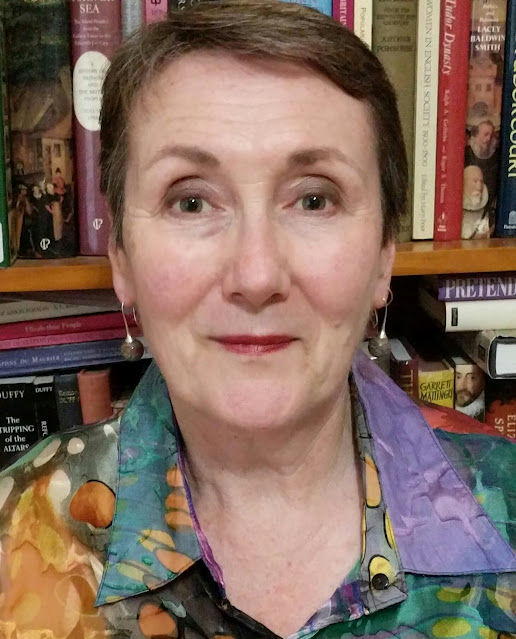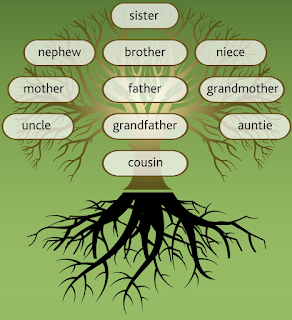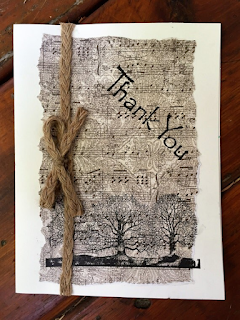Catherine is
no stranger to the Scribbler. Let’s welcome her back!
She writes historical fiction and she does it well. Her writing has won awards and the 4 & 5 star reviews are numerous.
I’ve had the pleasure of reading her novels – The Bridled Tongue & Forsaking All Other. Terrific stories. Read my review HERE.
She has been
a guest previously with an interview on the Scribbler and you can read it HERE.
This week Catherine
shares what’s next in her writing journey.
Catherine Meyrick is an Australian
writer of romantic historical fiction. She grew up in Ballarat, a regional city
steeped in history, but has lived all her adult life in Melbourne. Until
recently she worked as a customer service librarian at her local library. She
has a Master of Arts in history and is an obsessive genealogist.
Title: Cold Blows the Wind
'Hobart by the Bay' by JW Beattie courtesy of the State Library of Victoria.
Synopsis:
Hobart Town
1878 – a vibrant town drawing people from every corner of the earth where, with
confidence and a flair for storytelling, a person can be whoever he or she
wants. Almost.
Ellen
Thompson is young, vivacious and unmarried, with a six-month-old baby. Despite
her fierce attachment to her family, boisterous and unashamed of their convict
origins, Ellen dreams of marriage and disappearing into the ranks of the
respectable. Then she meets Harry Woods.
Harry, newly
arrived in Hobart from Western Australia, has come to help his aging father,
‘the Old Man of the Mountain’ who for more than twenty years has guided
climbers on Mt Wellington. Harry sees in Ellen a chance to remake his life.
But, in
Hobart Town, the past is never far away. When it reaches out, Ellen faces everything
in life a woman fears most.
Based on a
period in the lives of the author’s great-great-grandparents, Sarah Ellen
Thompson and Henry Watkins Woods, Cold Blows the Wind is
not a romance but it is a story of love – a mother’s love for her children, a
woman’s love for her family and, those most troublesome loves of all, for the
men in her life. It is a story of the enduring strength of the human spirit.
The
Story Behind the Story:
Cold Blows
the Wind grew out of
my genealogical research. Both my parents were interested in their family
histories and began researching in the 1960s. Mum’s work was painstaking and
meticulous, Dad had not quite the same level of perseverance. When I inherited
his papers, I discovered that he wasn’t particularly interested in the female
lines. Even with someone as recent as his maternal grandmother, Elizabeth
Woods, he had names for her parents but with question marks beside them. So I
decided I needed to start from scratch and work my way back from Dad, as any good
genealogist should. In Dad’s defence, I should say that genealogy was much more
difficult then, in the days before the internet and digitization. And a holiday
in Ireland or the United Kingdom to do a bit of digging in archives was not
something that a working man with a young family could even dream of.
Family
research is never finished—there is always more to discover but as it now
stands, I have traced all but one of my great-great grandparents, and seven
great-great-greats, back to where they came from in Ireland and Britain. In my
father’s case, I have discovered seven convict ancestors transported to New
South Wales and Van Diemen’s Land. In the process, I have uncovered stories
which even as recently as twenty years ago were lost to memory.
Which brings
us back to Elizabeth Woods. As well as her parents, I discovered her
grandparents who were absolute characters themselves – Henry Woods whose thieving
spree, at eighteen, along the streets of Cheltenham, collecting up everything
from three shillings and sixpence in copper to six pounds of bacon, two flutes
and a spade, brought him to New South Wales in 1822 and, later, on to Van
Diemen’s Land via Swan River; William Thompson a man with a great sense of
humour, transported at twenty-one from Stoke upon Trent and interviewed about
his convict experiences in 1899, who regarded nearly everything that had
happened to him as a ‘fair cop’; and William’s wife, Elizabeth Miller from
around the border between England and Scotland, who even in her sixties was
appearing in court charged with obscene language and being drunk and
disorderly. I knew the whats and wheres of the lives of Elizabeth’s parents, Harry
Woods the younger and Ellen Thompson, but I did not truly know the whys. Cold
Blows the Wind is my attempt to make some sense of what happened.
Some years
ago, I read A Cargo of Women: The Novel, a tight and gripping novel by
Babette Smith, based on the life of her great-great grandmother Suzanna Watson
who was transported to New South Wales in 1829 having stolen to feed her
children. From early in my genealogical research, I wanted to write something
about one of my female forebears and felt that the story of Ellen and Harry
lent itself to fiction having definite a narrative arc. I cannot say much about
what happened because it would give too much away but my novel sets out
possible motivations and reasons for the tumults in their lives. At least 80%
of what happens in the novel is based on documented events but the reasons for what
happened are my speculation. Where there are gaps, I have had to fill them in,
provide lives for people who disappeared, imagine how Harry and Ellen felt and expressed
themselves, what their hopes were. The people of my novel do not always have
use for the middle-class morality we now see as ‘Victorian’ and sometimes they speak
in the language of the streets, some of it uncovered through court records and
most of which would not make an average Australian today blush.
Cold
Blows the Wind is
probably the hardest thing I have ever written, possibly will ever write. I was
always deeply aware that I was writing about real people and that I needed to
do them justice, not treat them as literary pawns to be moved around on the
page. The research into the conditions of those at the bottom of society was
heartbreaking—the poor living conditions, low pay, precariousness of life where
illness or an accident could tip a family into poverty, the censoriousness and
judgement of those who had never known want, the cruelty of those without
conscience. But the novel is not just about what was done to these people, it
is about how they rose above it. They may not have ended their lives with grand
houses, vast estates or money in the bank, but they left behind families, the
most enduring of all legacies.
The novel
only covers a period of seven years but they were tumultuous years for Ellen
Thompson. Between the ages of nineteen and twenty-six she faced every single
thing, short of her own death, that women fear most in life. Hers is the story
of the resilience of the human spirit, the story of so many ordinary women of
the past. I hope I have done her justice.
Cold Blows the Wind will be released at the end of April 2022.
Website: www.catherinemyerick.com
A question before you go, Catherine.
What
inspires you to write historical fiction and how rewarding has the journey
been?
Catherine:
I came from a family
where the past was very much alive. As well as their family histories, my parents
were interested in history in general and they were both great readers. My
father read historical fiction and my mother historical biographies so when I was
old enough to start raiding their bookshelves most of the reading matter there
was historical. As we got older Mum shared interesting snippets from the books
she was reading. And everyone told stories, particularly in the evenings in the
years before we got a television, or when we went on holidays to Mum’s parents.
To a child or someone in their early teens all stories are historical whether
they take place a hundred years before their birth or merely ten. We heard stories
about their lives, other family members and their travels, tales about smoking
bark rolled in newspaper down by the New Town Rivulet and only being caught out
later because you had singed your eyelashes (Dad), or of being taken for a joyride
in a small plane and seeing Bass Straight above your head at night (Mum), or of
losing your father’s best bridle when you tried to use it to take a ride on the
back of an old man koala (Grandfather)*. We saw all these as historical, set in
another time and place and far more interesting than our ordinary lives
plodding off to school, the high point of the week the First Aid classes where we
got to cover very interesting plastic wounds with gauze and bandages. Even
items around our house—vases, photographs, items of jewellery, the box the
linen was stored in—had histories. History was fascinating.
Other than the short stories I wrote when I was first starting out, it seemed natural to write stories set in the past. And I am much more interested in the lives of ordinary people than the big names. While the big names had the money and influence, it is the ordinary people who made their visions possible. The canals and later the railways would never have been possible without the thousands upon thousands of navvies who worked constructing them.
Ordinary people working together can bring about change, though it may be slow and difficult, such as the halting steps over many many years that brought us universal suffrage. The lives of ordinary people are every bit as interesting and inspiring as those of despotic old kings’ wives. One thing we have learnt over the last couple of years is how much we depend for our general well-being on people working in not particularly well-paid and often unregarded jobs such as supermarket cashiers, shelf-stackers and delivery workers. The stories of the ordinary people who came before us are worth telling. And I want to give a sense of what their lives were like, the struggles and the limitations. Apart from a good story, I want the past to come alive for those who read my novels and for them to see that those who came before us were real people. While they may have held some attitudes that we now find objectionable, at their core they were just like we are today. They wanted shelter and warmth, freedom from illness and want, love and security, a space to hope and dream, and a better future for their children.
There is
satisfaction in seeing a project to its end, holding in your hands a printed copy
with a beautiful cover of the story you have worked on for several years. Although
the final product has never achieved my initial vision for the story, I suppose
if I were to achieve something that I thought was perfect, I would be too
terrified to write anything else.
The greatest
satisfaction of all is knowing that ordinary readers have enjoyed my stories.
One of the first comments on The Bridled Tongue, under the heading ’A
wonderful book’ was ‘I
usually skip through portions of a book when I read but read every page of this
one!’ What more could an author ask for?
*The
follow up to this story: My great-grandfather came home from work the same
evening, puzzled and rather pleased with himself. He had managed to get a
bridle off a large koala. It was in good condition so he said it would do as a
second-best bridle. But, come Sunday, when he went to saddle the horse for the
trip to church, he found his best bridle was missing. The truth came out and
the story ended as so many of my grandfather’s stories did, ‘And I ended up
with a tanned backside.’
Thank you for being our guest this week, Catherine. Wishing you continued success with your stories.
Thank you to all the wonderful readers and visitors. Please share your thoughts with us and leave a comment below.










No comments:
Post a Comment
Thank you for taking the time to leave a comment.